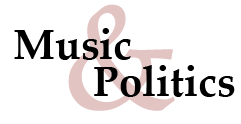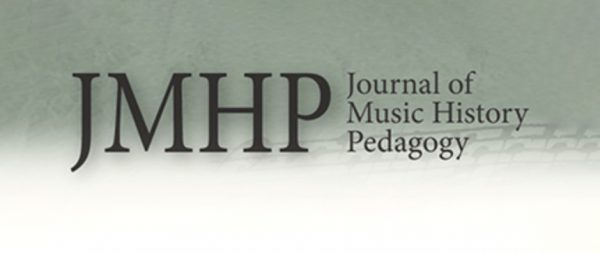 Dr. John Pippen, assistant professor of music in Ethnomusicology at Colorado State University, writes about labor and class struggles in the classical music scene in the United States, blending approaches from labor studies and aesthetic theory. His courses address sociological and anthropological studies of music, music practices around the world, and histories of music in the U.S. and Europe. In 2024, Pippen published two papers in esteemed journals.
Dr. John Pippen, assistant professor of music in Ethnomusicology at Colorado State University, writes about labor and class struggles in the classical music scene in the United States, blending approaches from labor studies and aesthetic theory. His courses address sociological and anthropological studies of music, music practices around the world, and histories of music in the U.S. and Europe. In 2024, Pippen published two papers in esteemed journals.
“Putting Class Back into Classical Music Studies” was published in Volume 18 of Spring 2024 Music & Politics and originated from a broad literature review Pippen did in preparation for his book project about Chicago musicians. The article “proposes a method for mapping the class location of classical musicians” and uses the labor aspect of the class “to show how we can understand classical music within the context of capitalist societies.” The article “reviews the ethnomusicological and musicological literature on class and classical music to demonstrate the consequences of omitting labor and class from the field.”
 Music and Politics, first published in 2007, is an open-access, peer-reviewed academic journal.
Music and Politics, first published in 2007, is an open-access, peer-reviewed academic journal.
“I’m especially happy to publish this article with Music and Politics because anyone can access it very easily. The article is about how to better understand musical labor, and a lot of musicians have reached out to tell me how much they enjoyed reading it,” Pippen said.
“Centering Capitalism in Music History Pedagogy” was published in the Volume 14 special issue of the Journal of Music History Pedagogy: Global Music History Course Design: A Pedagogical Toolbox with Syllabi. Pippen developed the article from his Honors 492 course about Chicago’s music history and observes that “the past several years have seen increased calls to center issues of race, gender, and colonialization in music history pedagogy.” The article builds on these calls by “placing capitalism at the center of music history in the United States.” Applying an intersectional lens, Pippen’s article shows “that a Marxist approach to colonialism provides a strong framework that can focus historical cases in useful ways.”
The leading journal on education for musicology, The Journal of Music History Pedagogy, is open access and widely accessible to readers. The journal publishes “original research on any aspect of the teaching and learning of music history at both the undergraduate and graduate level, for all audiences (majors, non-majors, and the public), and all genres of music.” As the journal’s website notes, the “editorial board seeks to present a balance of practitioner-based research; philosophical essays on educational theory, curriculum, and pedagogical inquiry; and systematic research that promotes a critical dialog about the teaching of music history.”
“I hope my article will help encourage music teachers in all areas to better engage with capitalism as a historical force,” Pippen said.
Article Information:
Pippen, J. R., (2024) “Putting Class Back into Classical Music Studies,” Music & Politics 18: 2. doi: https://doi.org/10.3998/mp.5971
Journal of Music History Pedagogy, vol. 14, no. 1, pp. 1–19. ISSN 2155-1099X (online)


